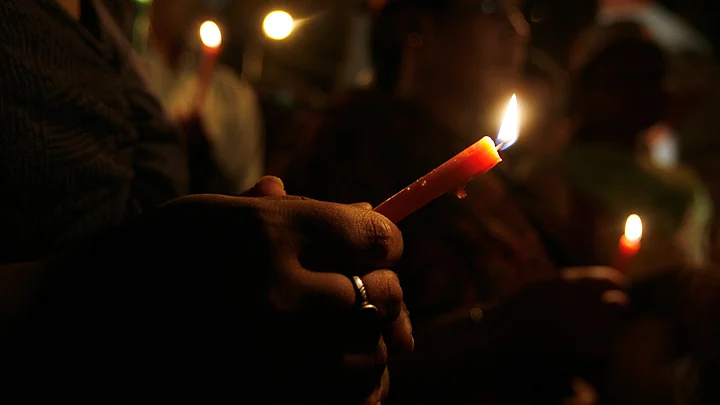Towards Restorative Justice
- Death penalty for 1993 Mumbai serial blasts convict Yakub Memon not justified since he had a limited role
- Principle of ‘an eye for an eye’ chilling in 21st century India
- Inclination towards capital punishment accentuated by CJI’s recent comments where death penalty is favored over life imprisonment
- Justice as a form of institution should aim to reform the criminal
- State’s duty is to protect the citizens, it can’t harm anyone by inflicting death penalty
As the clock ticks away for Yakub Memon, awaiting his doom in Nagpur’s central prison, we are confronted by two intuitive thoughts: he was unjustly condemned to hang till his death and whether, therefore, it would be a moral abomination to carry out the sentence. If there has been a miscarriage of justice, which certainly appears to be the case and in which the Supreme Court is as much complicit as the trial court that favoured capital punishment, then the death penalty awarded to him is not in proportion to the crime Memon committed.
Surely, a peripheral involvement in a heinous crime – the 1993 Mumbai serial blasts in which 257 people died – cannot attract the death penalty. Which brings us to the more fundamental question of whether the biblical principle of an eye for an eye, just dessert and punishment as revenge or payment in kind is justified in 21st century India. My answer to this vexed question is simple: the state should not be in the business of killing.
An Eye for an Eye?
The Indian judiciary’s record as an institution of justice delivery has been rather deplorable: since Independence, the number of convicts who have been executed stands at 755, and the list is by no means exhaustive. Different trial courts across India sentenced more than 1,400 persons to death between 2001 and 2011, but only four have been hanged since 1995.
It’s true that the Supreme Court has made incremental advance making laws related to the death penalty more humane and has held that it should be awarded only in the “rarest of rare” cases. But Supreme Court judges, who enjoy the exercise of the power of life and death, have an appallingly cavalier attitude to death penalty. On July 23, a five-judge Bench of the apex court led by Chief Justice of India H L Dattu observed quite casually that “what is the point in keeping a man in jail for whole life. Give him the death sentence. That will be better.” To describe such mindset as shocking would be an understatement.
This mindset reveals the Old Testament proclamation that “if there is harm, then you shall pay life for life, eye for eye, tooth for tooth, hand for hand, foot for foot, burn for burn, wound for wound, stripe for stripe.” It also exposes the judiciary’s long-held principle of retributive justice: that punishment of the most extreme kind is justified on the ground that wrongdoing merits the harshest of punishment. For retributivists like our men in black robes it is morally fitting that a person who does wrong should suffer in proportion to his wrongdoing; that a criminal should be punished for his guilt and the severity of the appropriate punishment depends on the depravity of his act.
Getting Even
While all liberal societies have systems and principles of punishment for wrongdoing, punishment by death is deeply ingrained, almost as a culture, in India’s judicial and social psyche. One evil is justified to prevent or deter the practice of greater evil. If we believe that justice is the first virtue of judicial institutions, as truth is of systems of thought, the Indian judiciary has failed the society by conceiving justice as the satisfaction of punitive dessert.
Our judges and society at large seem to believe that retaliatory punishment – getting even by inflicting death on convicts – restores the equality disturbed by the criminal who must atone for his crime by hanging – justice was done at 5 am. There is no hesitation on their part to present capital punishment as a regrettable necessity, a necessity that justifies killing because it is necessary.
Justice Can’t be Retributive
But justice by definition, insofar as the death penalty is concerned, ought not to be retributive, but restorative which gives all opportunities to death row convicts to reform. History has proved that human societies are inexhaustible founts of evil and crime is like contagion with which we have to live with even as we must continually pursue what Albert Camus called “our civilising mission.”
In his brilliant essay, ‘Reflections on the Guillotine’, Camus asks a question which Indian society must deeply ponder on: “But what then is capital punishment but the most premeditated of murders, to which no criminal’s deed, however calculated it may be, can be compared?” He goes further in ‘Resistance, Rebellion and Death’ to say that capital punishment “is to the body politic what cancer is to the individual body, with this difference: no one has ever spoken of the necessity of cancer.”
The state’s involvement in killing its own citizens can never be defended as a legitimate means to an end. The primitive ritual has survived in India because of the thoughtlessness or ignorance of the people which reacts with indignation whenever heinous crimes are committed or the time for a hanging nears with “ceremonial phrases” that have been drilled into their minds by the state. A citizen can turn against the state, but the state cannot, under any circumstance, turn against an individual.
